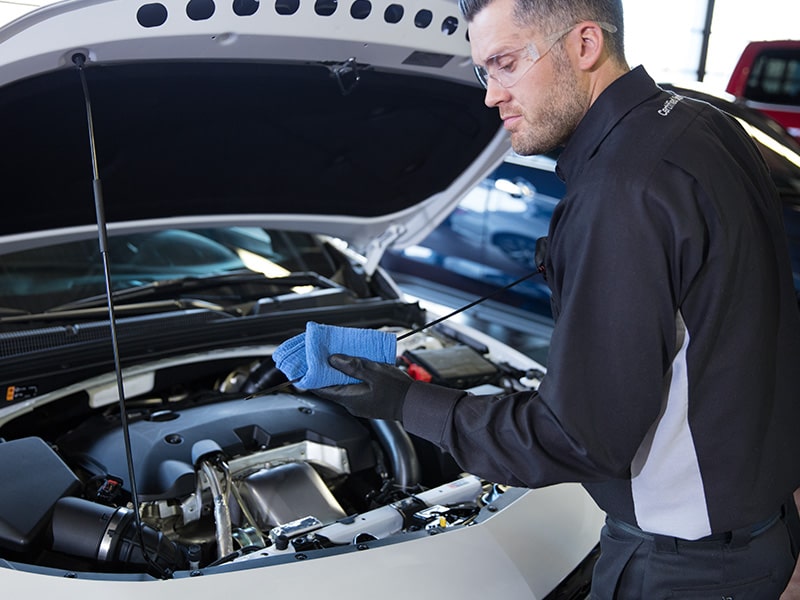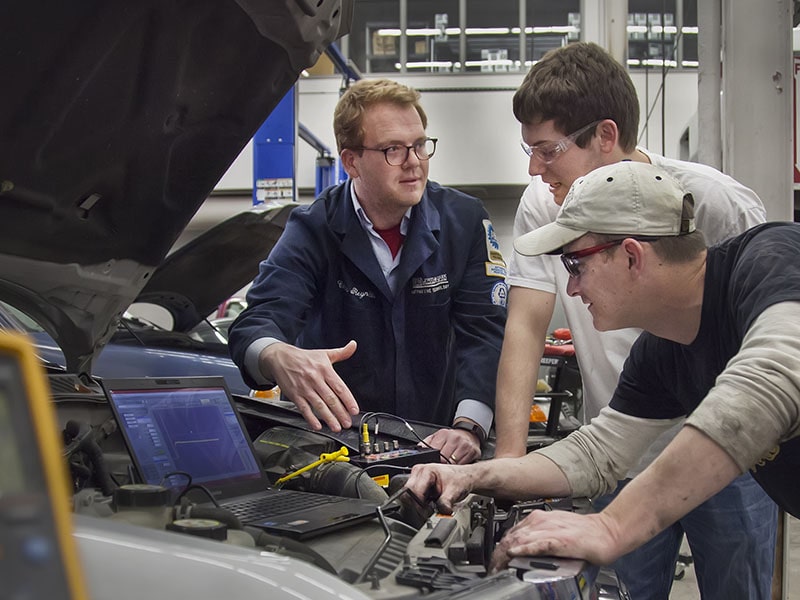
Basic vehicle maintenance
In popular culture, there is a belief that if you don’t get miles on your car, you don’t have to be so rigorous with maintenance, and that’s a big mistake. First of all, cars are made to be used. Secondly, many of the car’s components and fluids have an expiration date and begin to lose their properties after a certain time, which eventually affects everyone’s safety. Most cars only need a check of these fluids and other checks to be up to date.
Within the basic maintenance of the car there are different types of actions to take into account:
Checking the oil change, oil filter and air filter
The most important is the check of the oil and oil filter change. The oil is the blood of the engine and is responsible for ensuring that the internal metal parts do not have friction and that the engine works correctly. As a general rule, we should pay attention to the time periods indicated by the manufacturer, which depending on the engine and type of oil used, will be between 15,000 and 30,000 kilometres or up to two years maximum.
Together with the oil change, the oil filter and the crankcase washer or screw are replaced. These are two parts that have a very low cost and help to keep the oil free of impurities and prevent it from dripping from the bottom of the engine.
The engines also have an air filter that must be replaced within the time limits indicated by the manufacturer and its cost is also quite low. The antifreeze must also be checked and filled with the same type if needed, or directly replaced with new.
Transmission fluid or valvulin check
The gearbox also requires maintenance, as it carries a transmission fluid that with use and time will eventually degrade. If you ever notice that the gearbox goes in a little harder or you have the feeling that it “scratches”, it is due to the loss of properties of the transmission fluid. The manufacturers indicate that the change should be made every 60,000km or 5 years, whichever comes first, but we should always check what the manufacturer of your vehicle indicates.
The price is also very low and avoids breakdowns such as a broken gearbox, which is very expensive. If we also have an automatic gearbox, breakdowns add to the bill. It’s better to be safe than sorry. You may have heard many people say that you never need to change it. It’s up to you whether you believe that statement or not.

Condition of brakes and tyres
Brakes and tires are important for your safety, so checking them is a responsibility if you have a vehicle.
Tires should be checked every month. A simple visual check is enough to know their condition. It is important that the tyre has a minimum tread of 1.6mm (the legal limit) on summer tyres and 4.0mm on winter tyres. The correct tyre pressure is indicated in the manual and usually on the driver’s door. It is important to know that after 5 years, the tyre can start to crystallize.
You’ll see that it doesn’t lose any tread and that’s because it crystallizes. What happens? That it loses its soft capacity to conform to the asphalt, decreasing its adherence in all types of terrain and increasing the braking distance. The life of the tyre is usually around 30,000km on average or 5 years, which will also vary depending on the compound fitted, your vehicle and your driving style.
The brakes require three basic maintenances: checking the brake pads, checking the brake fluid and checking the brake discs. The brake pads should be changed when you start to notice the pedal going too far down. If when braking gently you notice that the steering wheel and brake pedal are vibrating, it is very likely that the brake discs are starting to bend, so you will have to replace them.
The brake fluid must be changed within the time limits indicated by the manufacturer, since as with any fluid, it loses properties with use and time. You will find people who say that it does not need to be changed, but often it does not cost more than 30 euros and it will be done every 2 or 3 years. A deteriorated brake fluid will not perform well in emergency braking by raising its temperature too much.
Lights and battery
If you notice that your vehicle is having trouble starting, it’s probably the battery, which is draining its life. In the most serious case, it will be the starter motor, but it is not usually. Batteries have a life of 5 years, although many last most of their life. If you notice that it is failing, change it as soon as possible, as in some cars it causes damage to lighting or other electrical components.
Timing belt
It’s probably the most expensive maintenance and most hated by everyone. The timing belt must be replaced within the manufacturer’s time frame. It varies greatly depending on the model, with some indicated every 60,000km or 5 years and others every 240,000km or 10 years. This revision usually includes changes of pulleys and water pump.
It is advisable to always carry out this maintenance, either by exceeding the time or mileage. As we have mentioned before, there are many vehicles here for that reason too! This is roughly the basic maintenance of any vehicle. As always, we should pay attention to what the manufacturer says and it is never wrong to shorten the time of revision, but it is wrong to exceed it.
If we buy a used vehicle, it is always advisable to take it to a mechanic and have all these points checked. Checking does not mean that everything should be done, but if the vehicle requires it, it should be done.
